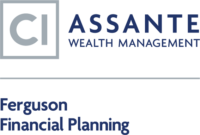Financial Planning: In your 60s

As you approach the milestone of your 60’s, it’s essential to engage in comprehensive financial planning to make the most of your hard-earned savings and investments.
We will guide you through the critical aspects of financial planning in your 60s, offering insights and actionable advice to help you navigate this important phase with confidence.
Finalizing Retirement Plans
Your 60s are an ideal time to assess and finalize your retirement plans. Begin by determining your desired retirement age and evaluating whether it aligns with your financial goals and resources. Consider factors such as your anticipated retirement lifestyle, ongoing expenses, and desired level of financial independence. This assessment will provide a clear understanding of the retirement savings required to achieve your objectives.
To ensure a steady income stream throughout retirement, evaluate your pension options carefully. Assess the benefits of any employer pension plans and explore the Canada Pension Plan (CPP) and Old Age Security (OAS) programs. Consider deferring CPP and OAS benefits beyond the standard age to increase your monthly payments.
Managing Retirement Income
One of the most significant concerns is managing retirement income to ensure it lasts throughout your lifetime. Establishing a sustainable withdrawal strategy is crucial to strike a balance between meeting your financial needs and preserving your investment portfolio.
A general guideline is to withdraw approximately 4% of your portfolio’s value annually, adjusting for inflation. This approach, known as the 4% rule, helps maintain a reasonable probability of sustaining your income stream for 30 years or more. However, everyone’s situation is unique, and it’s important to consult with a financial advisor to develop a personalized withdrawal strategy tailored to your specific circumstances. –
Consider diversifying your investments across different asset classes to reduce risk. Allocate a portion of your portfolio to fixed-income securities, such as bonds and cash equivalents, to provide stability and generate income. Review your overall asset allocation regularly and make adjustments as needed to ensure it remains in line with your long-term goals and risk tolerance.
Minimizing Taxes in Retirement
As you transition into retirement, it’s vital to implement strategies to minimize your tax burden and maximize your after-tax income. Consider the following tax-efficient techniques:
- Utilize tax-advantaged accounts: Continue contributing to your Tax-Free Savings Account (TFSA) to enjoy tax-free growth and flexibility when accessing funds in retirement.
Consider your marginal tax rate while you are still working compared to your anticipated tax rate in retirement. If you have begun to scale down work, you may want to rethink whether to continue contributing to your RRSP.
- Optimize eligible deductions and credits: Explore tax deductions and credits available to retirees, such as medical expenses, charitable donations, and pension income splitting. These can help reduce your overall tax liability and increase your disposable income.
- Implement a tax-efficient investment strategy: Work with a financial advisor to develop an investment portfolio that balances growth potential with tax efficiency. Consider creating a cash wedge in anticipation of withdrawals and introducing some dividend producing securities into your portfolio.
Updating Your Estate Plan
Estate planning is a critical aspect of financial planning in your 60s. Review and update your estate plan to ensure it reflects your current wishes and accounts for any changes in your financial situation or family circumstances. Consider the following estate planning essentials:
- Will and power of attorney: Ensure your will is up to date and accurately reflects your wishes for the distribution of your assets. Designate a power of attorney for financial and healthcare decisions in case you become incapacitated. Ensure your Executor and Powers of Attorney are up for the task.
- Beneficiary designations: Review and update beneficiary designations on your retirement accounts, insurance policies, and other assets. Make sure they align with your current intentions and account for any life changes, such as marriages, divorces, or the birth of children or grandchildren.
- Charitable giving: If charitable giving is important to you, consider including philanthropic goals in your estate plan. Explore options such as establishing a charitable foundation or including charitable bequests in your will.
Healthcare Considerations
Maintaining adequate health insurance coverage is crucial for protecting your well-being and financial security. As you transition into retirement, it’s essential to review your existing health insurance policies and make any necessary adjustments to ensure comprehensive coverage. Consider the following healthcare considerations:
- Supplemental Health Insurance: While provincial health coverage provides a foundation of healthcare benefits, it may not cover all your needs. Consider purchasing supplemental health insurance policies to enhance your coverage. These policies, often referred to as private health insurance or extended health plans, can offer additional benefits such as prescription drug coverage, vision care, and dental care. This is especially important for after you have finished working as your company sponsored health benefits plan may no longer be offered to you.
- Long-Term Care Insurance: Planning for long-term care needs becomes increasingly important as you age. Long-term care insurance provides coverage for services such as nursing home care, assisted living, or in-home care. By securing long-term care insurance in your 60s, you can preserve your savings from potential high expenses associated with long-term care.
Revisiting Life Insurance
Life insurance needs change as you approach retirement. During your working years your insurance may have focused on income replacement for your family. As you get close to retirement, the need for insurance shifts to more Estate Protection. Given certain retirement savings can be taxed at 50% – the need for insurance shifts from income replacement to covering final Estate Taxes and Probate. Consider the following factors:
- Coverage Assessment: Evaluate your life insurance needs based on your current financial obligations and the extent to which your loved ones rely on your income. If your children are financially independent and your mortgage is paid off, you may find that you no longer require a substantial life insurance policy. However, if you still have dependents or outstanding financial obligations, maintaining coverage may be necessary.
- Policy Conversion: If you have a term life insurance policy that is approaching its expiration date, explore the option to convert it into a permanent policy. This conversion allows you to maintain coverage without having to undergo medical underwriting, ensuring continued protection for your loved ones.
- Estate Planning Considerations: Life insurance can play a role in estate planning by providing liquidity to cover estate taxes, funeral expenses, and other costs. If estate planning is a priority for you, work with a financial advisor and an estate planning attorney to determine if life insurance should be included as part of your overall plan.
Your 60s mark an exciting period of transition as you prepare for retirement.
We can help
We work with business professionals, executives, and families to grow and protect their wealth using our Wealth Plan formula. To discuss our approach and if it is the right fit for you, we invite you to schedule a no-obligation discovery consultation.

